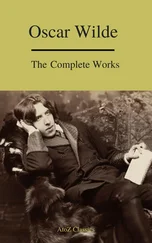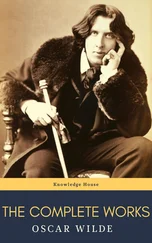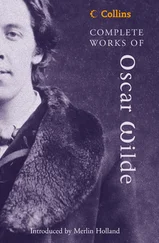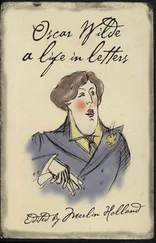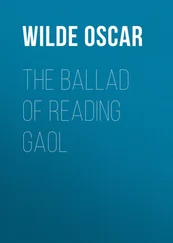While in prison, Wilde wrote the letter to Lord Alfred Douglas, part of which was published in 1905 by Robert Ross, under the title of De Profundis. In a letter to Robert Ross he wrote: ‘This is indeed an Encyclical letter, and as the Bulls of the Holy Father are named from their opening words, it may be spoken of as Epistola: in Carcere el Vinculis. ’ The manuscript was not revised by Wilde, although he intended to do this, as is shown by the letter he wrote to Robert Ross: ‘As soon as you have read it, I want you to have it copied for me. As regards the method of copying, I wish the copy to be done on good paper and a wide rubricated margin should be left for corrections.’ A copy of De Profundis was made and sent to Alfred Douglas; but after reading the first few pages, he destroyed it, probably thinking, rather naively, that there was no other copy in existence. Douglas strenuously denied ever having received the letter, and he could not go back on this without contradicting himself.
After my father’s death in 1900, Alfred Douglas tried to get hold of the manuscript, but Robert Ross settled the matter by sealing it up and presenting it to the British Museum, with the proviso that it should remain sealed for sixty years, that is to say until 1960, at the end of which time it might safely be presumed that everyone mentioned in it would be dead.
The copying was done hastily and without much care, because the version printed in 1949 varied in several particulars from the original manuscript, although, of course, the substance was the same. The version here printed has been carefully compared with the original and is exactly as Wilde wrote it.
The Portrait of Mr. W. H. was first published as an article of 12,000 words in Blackwood’s Magazine for July, 1889. Oscar Wilde became more and more obsessed with the idea contained in the article and during the next four years he re-wrote the story and added to it, bringing the total up to 25,000 words. The manuscript disappeared at the time of the sale of my father’s effects at Tite Street, together with others, and did not re-appear until the year 1920 in America, where it was published in a limited edition by Mitchell Kennerley. The expanded version is printed in this edition.
The only work that my father wrote after 1897 was the poem The Ballad of Reading Gaol, which he wrote at Berneval, so that Douglas’s claim to have had a large share in writing it may be ignored, as he and Wilde did not meet again until later.
All his life, my father had an intense leaning towards religious mysticism and was strongly attracted to the Catholic Church, into which he was received on his death bed in 1900. His remains now lie in the French National Cemetery of Père Lachaise.
Vyvyan Holland
THE STORIES OF OSCAR WILDE
Introduction by
OWEN DUDLEY EDWARDS
THE Lake District of England may not suggest Oscar Wilde (although, with pleasing irony, his is the literary name most obviously prompted by Lake Windermere) but it doesn’t really matter where I witnessed it. It could have been anywhere. The date was about 25 July 1993. The people were adults and children, mostly Roman Catholics, of the Dominican Peace Action Group. The weather was an incessant downpour. The speaker was Sue Dowell, an Anglican Rector’s wife, talking about literary failure to think of children from the child’s standpoint, and then, for an example of a storyteller who saw things from a child’s interest (in all senses) rather than an adult’s, she offered to read the little ones a story. The room was split with infant yells of ‘The Selfish Giant’. She read it well, and her audience was the most silent and attentive it ever proved itself in the entire week. At the close there was one united sigh of rapture. It was perfect ecumenicism, transcending cultures, ethnicities, nationalities, religions, genders – and ages. To my generation and the next, Wilde is an old friend – but to those-children, some half-a-century my junior, he was evidently a (fairly) old friend, less by his own name than as the man who wrote ‘The Selfish Giant’. His sensational biography, dazzling theatre, fin-de-siècle, fireworks of epigram, were all irrelevant. His future in the next century is secure in the hands of these truest of all lovers of Art for Art’s sake. It neatly disposes of the superstition that his literary survival is a spin-off of scandal.
‘I’m glad they didn’t ask for ‘The Happy Prince’,’ said Ms Dowell afterwards. ‘It always makes me cry.’ It was ‘The Selfish Giant’ which made Wilde himself cry when he told it, recalled his son Vyvyan in Son of Oscar Wilde (1954). His recollection is most valuable. Wilde’s success arose primarily from thinking of stories as things to tell.
It is hardly surprising. His mother was an Irish folklorist, his father was an Irish topographer. He himself graduated in classical scholarship whose earliest texts were the oral narratives of a probably illiterate Homer. It gave him a much more immediate sense of audience than most writers. This is not to say that the stories were first told to his two sons, though simple versions of them may have been: Cyril was almost three when the five stories in The Happy Prince and Other Tales were published in May 1888, Vyvyan one and a half. But they were written with the intention of telling them to his sons. They are stories from an unselfconscious father who knows how to move the storyteller in and out of the narrative with mild self-mockery, as opposed to some assertive male chauvinist brute thundering his own dignity and morality for the edification of his wretched offspring. Wilde is on the child’s side: but he knows the child will only be truly happy if it hates cruelty, treachery and poverty, if it loves loyalty, laughter – and love. These are stories by someone in love with love. As Tolstoy would say, it is where God is.
His sons were a projected audience for the stories, but not an imaginary one. He was already singing them to sleep with lullabies in the Irish language. We have therefore to think of Wilde’s rebellion against Victorian materialism being partially grounded in the older cultures that materialism claimed to supersede. He could play games with the English language because he stood on its frontier; however limited his Irish he was profoundly aware of it. It is noteworthy that the two most successful adaptations of Wilde’s work into another language are Patrick Pearse’s into Irish: Iosagán and Eoghainín na nÉan from ‘The Selfish Giant’ and ‘The Happy Prince’. Pearse was borrowing from a source Puritan Ireland forbad his acknowledging, but he was also taking the spirit of the stories back to the tongue whence it came.
Wilde in London society or in Paris Bohemia might seem far from Irish roots, but his impact was still that of the story-teller even when the story might be compressed into a sentence. And however clothed in raiment acceptable to fashionable London, the stories in almost all cases travel back to a Celtic folk-world dominated by ghosts and God: the Man Predestined to be a Murderer, the Murderer whose only Salvation can come from the Selfsacrifice of an Innocent, the Salvation of Body by Damnation of Soul – strange but undeniable descriptions of ‘Lord Arthur Savile’s Crime’, of ‘The Canterville Ghost’, and of The Picture of Dorian Gray. They sparkle with comedy and epigrams; they toy with philosophy and lightly flick off profound social comment; they martial incidental figures with the precision of point visible in the pencils of his reluctant disciple Beardsley and his rebellious disciple Beerbohm. But go to the hearts of the stories and they play with ideas as old as time and as deep as hell, and yet may hope from time to time for heaven.
Читать дальше
Конец ознакомительного отрывка
Купить книгу


